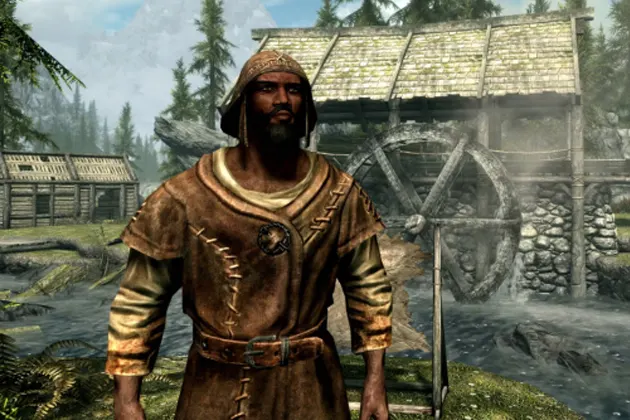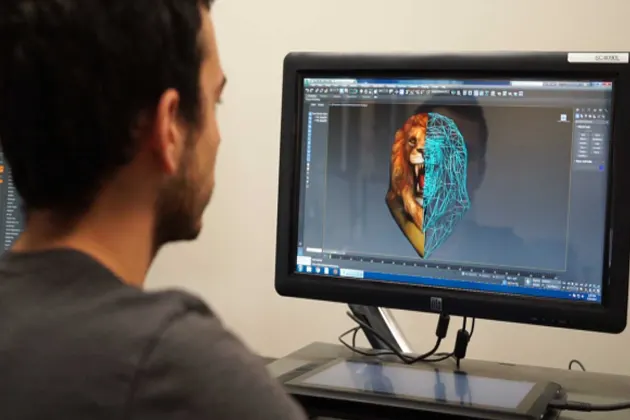Artificial Intelligence (AI) is playing an increasingly important role in the evolution of video games. From enhancing the behavior of non-playable characters (NPCs) to generating entire game worlds using procedural algorithms, AI is radically changing the gaming landscape. These innovations not only enrich the gaming experience but also allow developers to create expansive, dynamic, and immersive worlds, which were previously impossible to achieve. In this article, we will explore the main ways AI is transforming the world of computer games.
Smart NPCs: Making Games More Engaging
Traditionally, NPCs in video games were programmed to follow predefined paths or behaviors. However, with the advancement of AI, these characters are becoming more sophisticated and are able to react to the actions of players. AI-driven NPCs can now learn and adapt to players’ strategies, making them more complex and realistic. By using behavior trees or machine learning algorithms, NPCs can exhibit unique personalities, respond to changes in the game world, and create dynamic interactions with players.
For example, in games like The Elder Scrolls V: Skyrim, NPCs follow their daily routines, interacting both with players and each other, creating an organic feel. These AI-based advancements make the world feel alive and responsive, greatly enhancing the level of immersion. As AI technology continues to evolve, NPCs are likely to become even more complex, leading to more engaging narratives and gameplay.
Future Trends: What’s Ahead for AI in Gaming?
Looking ahead, we can expect AI to continue to have a massive impact on the gaming industry. From smarter NPCs to procedurally generated worlds, the possibilities seem endless. One exciting prospect is the use of AI to create fully interactive game narratives. Imagine a game where the story adapts not only to the player’s actions but also to their emotional responses, which are detected using AI systems.
As AI continues to develop, even more significant advancements are expected in the way games are designed and played. The integration of AI with virtual reality (VR) and augmented reality (AR) could lead to even more immersive gaming experiences, where the boundaries between the player and the virtual world become increasingly blurred. Additionally, the rise of AI in esports and competitive gaming is likely to have a profound impact, offering opportunities for new strategies and gameplay dynamics. Players can also stay ahead of trends in esports by exploring the best dota 2 betting sites for 2025, helping them be among the first to learn about new opportunities. As AI continues to grow in esports, understanding how technology shapes the future of games can provide valuable insights into the development of gaming strategies and engagement opportunities.
Procedural World Generation: Endless Possibilities
Another revolutionary application of AI in games is procedural world generation. This technique allows developers to use algorithms to create vast open worlds without the need to manually design every detail. With AI, these generated worlds can be dynamic, unpredictable, and limitless in scale, offering players fresh experiences every time they play.
Games like Minecraft and No Man’s Sky use procedural generation to create enormous universes, where players can explore endless landscapes—ranging from forests and mountains to entire planets. By using AI to generate these worlds, developers can build massive environments that are too large and diverse to be manually created by humans. Procedural world generation also ensures that each player’s experience is unique, adding a layer of replayability to these games.
AI’s Role in Game Design and Development
AI is not only changing how players interact with games but also how games are designed and developed. Game developers now use AI tools to automate time-consuming tasks such as level design, asset creation, and testing. These tools help speed up prototyping, allowing developers to experiment with new ideas and mechanics more efficiently. AI-powered systems can also assist in generating dynamic, scalable environments, reducing the manual labor required to create expansive game worlds.
Furthermore, AI has proven useful in quality assurance. Automated testing using AI can simulate thousands of game scenarios, identifying bugs and glitches that might be missed by human testers. This ensures a smoother gaming experience and helps developers release higher-quality games. AI can even be applied in gameplay balancing, adjusting the difficulty level or tweaking in-game elements based on player behavior, ensuring the game remains challenging and engaging. The continuous integration of AI into game development not only accelerates production but also improves the overall quality of games, making them more immersive and enjoyable for players. As AI technology advances, we can expect even more sophisticated tools that will reshape the entire game development pipeline, making it faster and more efficient.
Conclusion
Artificial intelligence is undoubtedly reshaping the landscape of video games. Whether it’s through smarter NPCs, procedural world generation, or enhancing the player experience, AI is making games more engaging, dynamic, and personalized. As technology continues to advance, we can expect AI to play an even greater role in the future of gaming, blurring the lines between virtual worlds and reality. Both game developers and players should eagerly anticipate a future where AI makes the gaming experience more thrilling, unpredictable, and exciting than ever before.
Moreover, the integration of AI into competitive gaming and esports opens up new possibilities, offering unique insights into strategy development, player behavior analysis, and even real-time adjustments to match dynamics. The rise of AI-driven games and platforms could also lead to the creation of entirely new genres, offering players experiences they’ve never imagined before. With AI continually evolving, the potential for creating deeper, more immersive, and personalized game worlds is limitless. The future of gaming is undeniably intertwined with AI, and its influence will continue to shape and redefine the industry for years to come.











